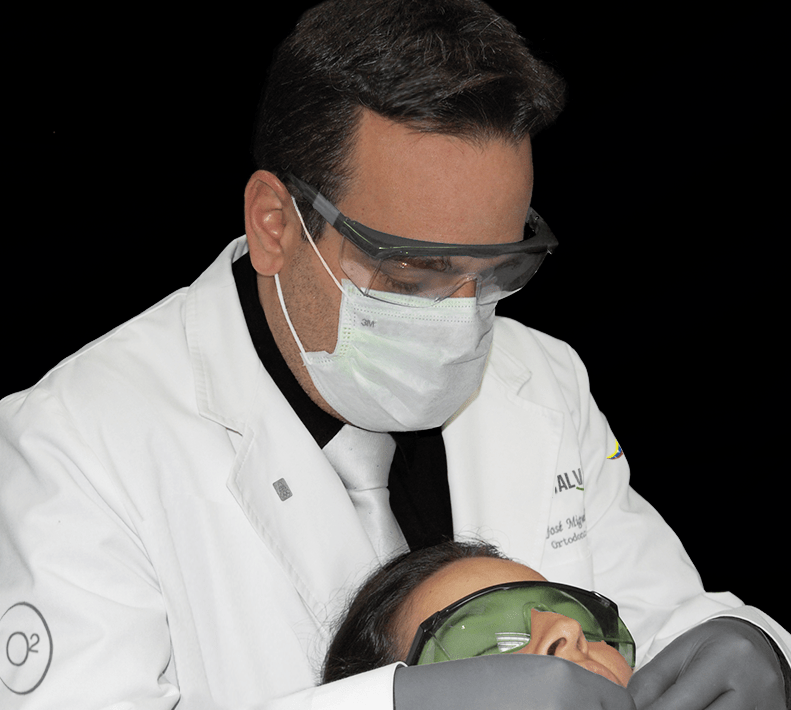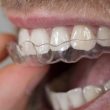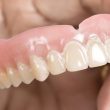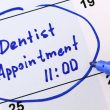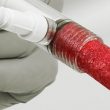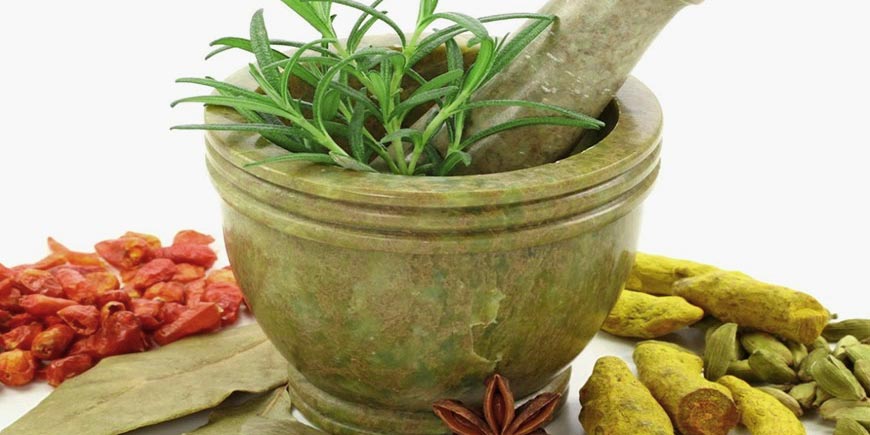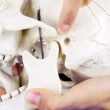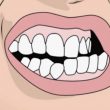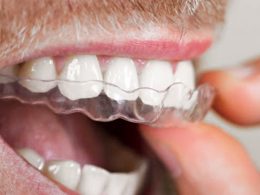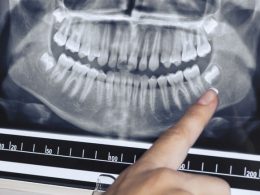Table of Contents
Toothache or odontalgia is a fairly common ailment that most people have been unlucky enough to experience at some point in their lives. It refers to pain in or around a tooth, and it can be felt in multiple ways: it can be constant or intermittent, it can be intense, mild or moderate; it can be spontaneous or induced, dull or throbbing, etc.
Also, it can be made worse by eating or drinking, especially if the food is very hot or cold. The main causes of toothache are cavities, infection of the dental nerve or pulp, periapical abscesses, dental fractures, and occlusal trauma.
The problem is that the vast majority of dental pains occur or intensify at night, when most dental clinics are already closed or it is difficult to leave home.
Whether mild or severe, this type of pain is usually extremely uncomfortable and annoying. But what is even worse, is that it almost always becomes a great impediment to falling asleep at night, while it dawns and the person can visit the Dentist on an emergency basis.
Relationship Between Toothache and Sleep
It is not actually the time of day itself that causes the pain to increase, but rather, the position we adopt when lying down.
From the Latin supīnus, supine is an adjective that refers to what belongs to or relative to supination, the position that a person adopts when lying on his back. It is known as supine decubitus to the position of people or animals when they lie horizontally and the body rests on the back.
This position that we normally adopt to sleep, increases the blood flow to the head and therefore the pressure on the nociceptors (pain receptors) and tooth or molar structures that are damaged. This causes the neurons to intensify their activity, so the pain increases to many times reaching insupportable levels.
So much so, that many people later confess to having practiced irrational and even ridiculous actions, a product of despair, such as washing their face a thousand times, pouring milk on their teeth or hitting their cheek with force. Dental pain can be so severe, that some texts even compare it to the intensity of labor pain.
Some Resources That Can Help You Rest!
If the pain is truly intense and excruciating and you cannot find a Dentist that works at night, you will always have the option of going to a hospital or private medical clinic to at least be given powerful pain relievers, preferably intravenously.
However, if the symptoms are still within your tolerance limits, some recommendations exist that can help you cope with the situation and fall asleep, even for a little while. Here are the basic recommendations:
1- Oral Analgesics
Take over-the-counter pain relievers such as acetaminophen or ibuprofen (as long as you are not allergic to the product) it should always be the first action a person with dental pain should take. These drugs tend to quickly and effectively reduce symptoms in the vast majority of cases, especially when the pain is mild to moderate.
Dosages indicated in adult patients are usually: ibuprofen 400 mg, 1 tablet every 8 hours and acetaminophen or paracetamol 500 mg, 1 tablet every 6 hours.
2- Cold Compresses
Using a cold compress can help soothe a toothache. Placing an ice pack wrapped in a towel on the affected side of the face or jaw helps constrict the blood vessels in the area, which can reduce pain and help you fall asleep.
We recommend applying the cold for 15 to 20 minutes, at hourly intervals.
3- Head Posture
The accumulation of blood and pressure in the head can cause more pain and inflammation. In some cases, elevating your head with an extra pillow or two can relieve pain and help you sleep.
4- Medicated Ointments
Some medicinal ointments can also help soothe toothache. Over-the-counter anesthetic gels and ointments that contain ingredients like benzocaine can numb the area.
However, these products are not suitable for young children.
5- Salt Water Rinses
A simple salt water rinse is a very common home remedy for toothaches. Salt water is a natural antibacterial agent, so it can reduce inflammation. Also, it helps fight infection in damaged teeth.
Salt water rinses can also help remove food particles or debris trapped in the teeth or gums, which may be acting as permanent pain stimulants.
It is recommended to dissolve a teaspoon of salt in a cup of warm water and then rinse the mouth for about half a minute, before spitting it out.
6- Rinses with Oxygenated Water (Hydrogen Peroxide)
Hydrogen peroxide is active against a wide range of microorganisms such as bacteria, yeasts, fungi and spores. In low concentrations, hydrogen peroxide can be used as a mouthwash to remove mucus, treat minor irritations, and relieve dental pain.
Hydrogen peroxide attacks and destroys the anaerobic bacteria of cavities and oral infections, reducing their number and enzymatic activity.
Hydrogen peroxide needs to be diluted with equal parts water. Swish the solution in your mouth, but do not swallow it. This remedy is not suitable for children, as there is a risk that they may accidentally swallow the mixture.
7- Peppermint Tea
Drinking or sucking on peppermint tea bags can also help temporarily relieve tooth pain. Research indicates that peppermint contains antibacterial and antioxidant compounds.
Additionally, menthol, an active ingredient in peppermint, can also have a mild numbing effect on sensitive areas.
8- Cloves
Eugenol, which is one of the main compounds in cloves, can reduce dental pain. Results from a recent clinical trial indicated that people who applied eugenol to the gums and tooth socket after tooth extraction, experienced less pain and inflammation during the healing period.
Eugenol acts as a pain reliever, which means it numbs the area. To use this resource, ground cloves must be soaked in water to make a paste. Then, apply it to the tooth, or place it in an empty tea bag and place it in the mouth.
Another alternative is to gently chew or suck on a single clove and then let it stay close to the aching tooth, to help ease the pain. This is not a suitable remedy for children, as they could swallow the clove and suffer gastrointestinal damage.
9- Garlic
Garlic is a common household ingredient that some people use to relieve toothaches. Allicin, which is the main compound in garlic, has a strong antibacterial effect that can help kill bacteria in the mouth that cause cavities and toothache.
Simply chewing on a clove of garlic and letting it stay close to the tooth, can help relieve pain. However, the taste of raw garlic can be too strong for some people, so it is not the right solution for everyone.
10- Ginger and Cayenne
For this homemade remedy, mix equal parts of ginger and cayenne spices, and add water to form a paste. Soak a cotton ball in the mixture until it is saturated and place it on the affected tooth, being careful not to touch the tongue and gums. You should leave it in place until your tooth pain subsides, or as long as you can bear it, as you will most likely feel the paste burning.
Other Home Remedies
Although many people express great confidence in their own home remedies (of which there are millions) to relieve toothaches, in reality the effectiveness of none of them has been scientifically proven. Perhaps the trick is to adopt a positive attitude to achieve a kind of placebo effect.
“For Sure, Going Every 6 Months to a Consultation for a Professional Dental Checkup and Cleaning, Is the Best Way to Avoid Pain and Emergency Situations”.
DENTAL TIP
Do Not Waste Another Second!
Keep in mind that if you have suffered dental pain, the only safe and definitive solution is in the hands of your Dentist. Only a correct diagnosis and treatment of the case, will be able to avoid the recurrence of pain and guarantee the return to normality.
If you had a bad night or perceive that you have problems with one of your teeth, do not waste time or think too much at dawn, go immediately to your trusted Dentist or dental clinic. Be astute and forehanded!
We Are Just One Step Away!
Globalization and dental tourism are two extraordinary tools for accessing world-class Dentistry. Currently millions of people travel to other countries in search of opportunities and prices that allow them to face their dental treatments and recover their smile.
Wherever you are, generally in just a few hours you will be able to get to Venezuela, move to a comfortable hotel and start your oral rehabilitation process with dental implants, porcelain veneers and 100% metal-free ceramic structures; at only a fraction of the cost you would have to pay in your home country.
Almost certainly traveling or not traveling will mean the difference between satisfaction and resignation, or at best, between just getting “something” or be able to reach “the best option”. At DENTAL VIP we are very good hosts and excellent professionals.
Contact us and ascertain how traveling to Venezuela can improve your self-esteem and quality of life!
